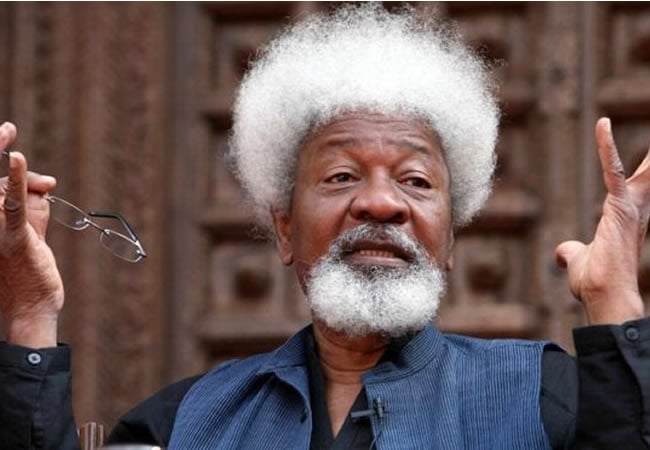The United States Embassy in Lagos has stated that visas granted by the country to foreign nationals are based on privilege, not a right.
The US Consulate in Lagos made this clarification on Thursday in response to an inquiry from The PUNCH regarding the revocation of the visa of Nobel laureate, Prof. Wole Soyinka.
In an email response, the Consulate said it could not discuss the details of the specific visa due to confidentiality.

“Under U.S. law, visa records are generally confidential. We will not discuss the details of this individual visa case,” a spokesperson for the US Mission in Nigeria said.
The Mission further explained that visas can be revoked at any time at the discretion of the US government, emphasizing that they are a privilege, not a right.
“Visas are a privilege, not a right. Every country, including the United States, can determine who enters its borders. Visas may be revoked at any time, at the discretion of the U.S. government, whenever circumstances warrant,” the Mission said in its response.

Soyinka had earlier revealed, during a media parley on Tuesday in Lagos, that his B1/B2 visa had been revoked by the US Embassy. The 91-year-old Nobel laureate told journalists at Freedom Park, Lagos, that he should not be expected in the United States for any event, as he currently has no valid visa.
During the event titled “Unending Saga: Idi Amin in Whiteface,” Soyinka said the revocation notice was communicated to him by the US Consulate General in Lagos in a letter dated October 23, 2025.
“It is necessary for me to hold this press conference so that people in the United States who are expecting me for this event or that event do not waste their time. I have no visa; I am banned, obviously, from the United States. And if you want to see me, you know where to find me,” he said.
Soyinka, a long-time critic of former US President Donald Trump, noted that he was unsure why his visa was revoked.

“I’ve started looking back—have I ever misbehaved toward the United States of America? Do I have a history? Have I been convicted? Have I gone against the law anywhere?” he asked.
He then recalled two minor incidents that took place many years ago, wondering if they might be related to the revocation.
“I remember pleading guilty at the airport one day when I landed in Chicago. It was my first major production in the United States. I had gone to an Indian restaurant in London and took a few green chilies in my pocket. I forgot to declare them when I returned to Chicago. They said I could plead guilty and pay a fine of about $25, which I did. Maybe that’s one possible offence that resurfaced,” he said.
He also recounted another incident from the 1970s during an international conference organized by the American Society of African Culture in Atlanta.

“There was a racist incident involving the hotel receptionist, which led to a confrontation with the police. So, I could be said to have disobeyed police orders. That was over 30 years ago,” he added.
Soyinka stressed that he did not believe either of those incidents justified the visa revocation.
According to the letter addressed to him, the US Consulate stated that his non-immigrant visa “has been revoked pursuant to the authority contained in the U.S. Department of State regulations 22 CFR 41.122 and is no longer valid for application for entry into the United States. Additional information became available after the visa below was issued. This revocation refers only to the visa listed below.”
The Consulate also requested that Soyinka return the visa to the Lagos Embassy “for physical cancellation,” a request he described as humorous, asking if anyone in the audience would volunteer to deliver it on his behalf.
The letter also stated, “If you have plans to travel to the United States, you must apply again to re-establish your qualifications for a new non-immigrant visa.”

Soyinka’s visa had been issued on April 2, 2024, in Lagos.
Renowned globally as a playwright and poet, Soyinka won the Nobel Prize in Literature in 1986. He has spent considerable time living abroad, including in the United States, where he held teaching positions at several universities.
The revocation of his visa has sparked renewed discussions about the United States’ recent immigration policies and its efforts to tighten visa regulations, particularly for applicants from Africa.




